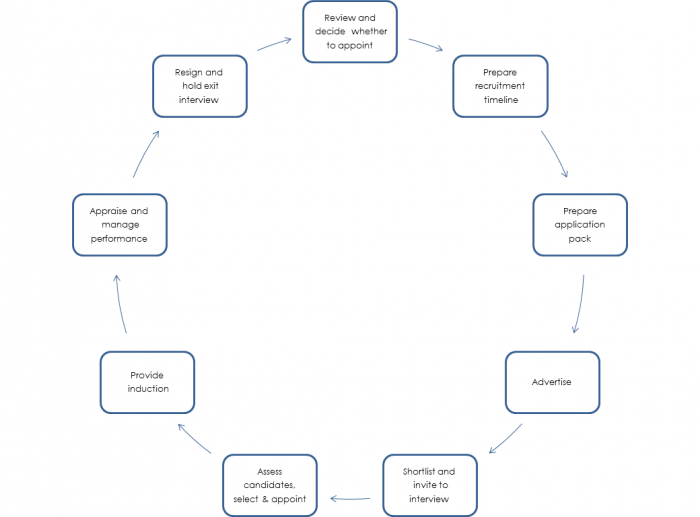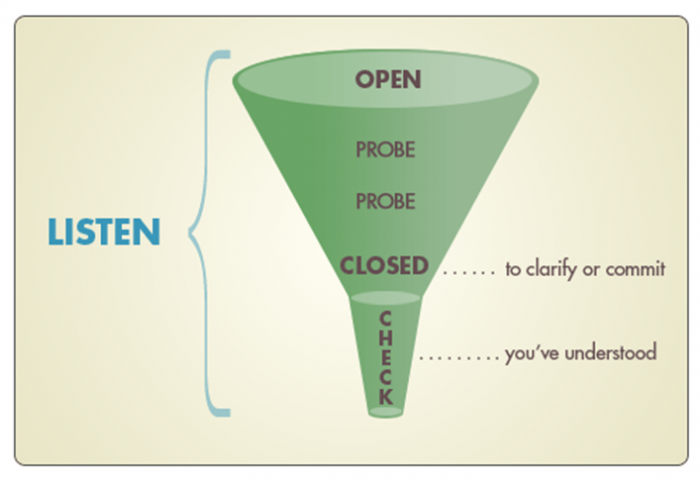
Without a doubt, school recruitment is critical for the success of any school. We know only too well that poor selection decisions can be costly and time consuming. However, selection decisions within teacher recruitment are no more or less important than any other part of managing staff. Staff and teacher selection is often viewed in isolation from the wider work of leading and managing staff. Our experience suggests that the most effective way of approaching selection is to treat it as part of the employment cycle in which each stage informs the next.

All school recruitment and selection should be:
- Efficient: being as cost effective as possible
- Effective: producing enough suitable candidates in order to make the best decision
- Fair: ensuring that all decisions are made on merit alone
School recruitment
The purpose of school recruitment is to attract a good set of candidates. Effective teacher recruitment processes should be designed to attract the right candidates and deter unsuitable applicants.
Selection
The purpose of selection is to choose the candidate from the pool who best fits the needs of the vacancy. Critically important, and often forgotten, selection is a two-way process. Whilst the selection panel will be evaluating each candidate; they, in turn, will be evaluating the school and making judgements based on the selection panel. Candidates have the right to walk away. All employers should remember this important fact.
Communication
Effective recruitment and selection has transparent communication throughout. Keeping candidates informed throughout the process will keep them interested in the post and also evidence your values of openness and transparency.
Great school recruitment relies on a number of key things:
- Be clear before you start what you are looking for
- Have a clear time table
- And remember is you are show casing you and your school
Your first challenge is to think clearly what skill set are you looking for, what support development you can offer and what you don’t want. This first stage should help prevent you getting beguiled by a candidate who doesn’t offer what you need.
My experience with recruitment in schools is that candidates are few and the need in the school is urgent! So keeping a clear head and being prepared is absolutely crucial.
Tell a compelling story about your school and why it is the best place to work, this will contributing to a great teacher recruitment campaign.
Before interviewing
Before interviewing, there are a number of tasks to undertake. These are important in order to ensure that you appoint a candidate that is suitable to work with children and young people.
Ways to assess
Recruitment is so important, you need to consider the best ways to assess candidates to make the best appointment. Where possible, it is advisable to assess the candidate in a scenario which is real in relation to the job that they will be working in. This allows you to make a valid judgement on more than their interview responses.
Types of questions
Designing good quality interview questions is a skill. Questions should be designed against the job description and person specification because this is what you have told your candidates that you are looking for.
You do not need to ask a question for every point on the job descriptions and person specification. If anything, fewer well-chosen questions that you probe and get into some depth with often tell you more than a scatter-gun of lots of random questions.
Summarising questions
These are used to check that the panel have the correct understanding of a candidate’s response/s, for example:
- “You have said that… Is that correct?”
- “I understand that… Am I right?”
People often talk about the funnelling approach at interview.

- Ask an open question to open the dialogue.
- Use a probing question or questions to dig deeper.
- Use a closed question to clarify or confirm.
Candidate outcome record
It is good practice for the selection panel to make a joint record at the end of the selection process. This means that everyone agrees:
- Which candidate/s is being offered the post and which are not
- Specific issues that were addressed through the recruitment process
- Strengths of the candidate
- Development points for the candidate
Feedback to candidates
Once a candidate is chosen it is important to give honest and accurate feedback which you can evidence with examples and anecdotes from the selection process. Feedback should always be constructive and never destructive.
The Job Offer
It is usual practice in the education sector to offer the job verbally by telephone. This should always be followed up in writing as soon as possible. The purpose of this letter is to formalise the details of the offer and ensure absolute clarity.
Having completed the recruitment process, it is important to record that you have all the necessary documents in place and evidenced for the successful candidate.
Once a person is selected and has accepted the post, it is important to ensure that all the recruitment and selection records are securely stored and an individual HR file is started.
Claire Livingstone is the Head of HR and Organisational Development in an academy trust. She has a genuine understanding of leadership and what it entails. She is passionate about helping school leaders to develop and unlocking their potential. Claire has worked in HR and organisational development for the last 20 years.






